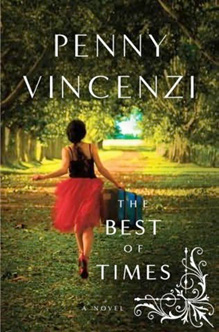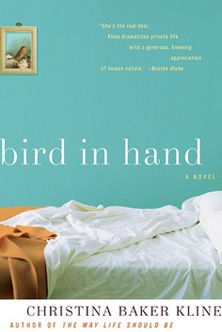by KarenEssex | Jul 18, 2011 | books, dracula in love, sex, women
I originally wrote this piece for Publisher’s Weekly but it was cut in half for space. Here is the unedited version.
No Sex, Please, We’re Literary!

Sex sells. But what about sexy storylines? When it comes to fiction is sex in one category and literature in another, and never the twain shall meet? In this provocative essay, author Karen Essex takes on the issue and responds to critics of her literary thrillerDracula in Love. So get ready … things are about to heat up.
During an auction for the audio rights to my new novel, Dracula in Love, my editor forwarded me an email that was sent from one of the bidders. “This book is so hot that I can’t wait to get home to my wife!” he proclaimed, and then outbid everyone else and presumably went home and made his wife happy. (Mrs. Audio Rights, you owe me.) ... Read more.
by KarenEssex | Sep 8, 2010 | dracula in love, sex, women
Published September 6, 2010 in
Publisher’s Weekly
During an auction for the audio rights to my new novel, Dracula in Love, my editor forwarded me an e-mail from one of the bidders. “This book is so hot that I can’t wait to get home to my wife!” he proclaimed, and then outbid everyone else and presumably went home and made his wife happy.
We were delighted to hear that feedback because during the writing process, we had tortuous debates over just how much sex would be too much. My most trusted readers are my agent, my editor, and my manager (yes, I’m lucky), and each had very different responses. Without giving away proclivities, two on the team kept begging for more, though what one thought erotic, the other sometimes found terrifying. The third loved every sensual drop, but kept reminding us of the puritanical level of the basic American reader, specifically, the literary reader, that elite creature who relies on a host of signifiers to be distinguished from the genre reader. She pointed out that the book had the elements that discriminating readers look for in a literary work: a strong, authoritative voice, painstakingly composed prose, and serious themes. “This book is too rich to have its seriousness dismissed because of the sex scenes,” our cautionary voice reminded us. “You know how readers are! They see some sex on the page and assume it’s a bodice-ripper.” ... Read more.
by KarenEssex | Aug 12, 2010 | dracula in love, women
In honor of the official publication date of Dracula in Love, the vampire’s muse has broken her century-long silence in an exclusive interview with Fangoria Magazine. Read what the once quintessential Victorian virgin has to say about 21st century rehab, Internet porn, and her nostalgia for velvet:
EXCLUSIVE: MINA HARKER SPEAKS!
Meanwhile, one of America’s top mortal voices, the esteemed Bruce Feiler, New York Times columnist, peripatetic historian, and repeated New York Times Bestseller list offender, has posted his thoughts about Dracula in Love on Amazon:
http://www.amazon.com/Dracula-Love-Karen-Essex/dp/0385528914/ref=sr_1_1?s=books&ie=UTF8&qid=1281275252&sr=1-1 ... Read more.
by KarenEssex | Nov 28, 2009 | books, power, sex, women
KE: The film producer Lynda Obst once told me that she came up with the idea for the George Clooney/Michelle Pfeiffer romantic comedy One Fine Day, when she—overworked, exhausted—was lying on a massage table thinking that to meet a man she would have to literally crash into one with her car. Andrew Davidson, who I chatted with recently on the blog, opened his bestseller, The Gargolye, with a car accident that transforms his character, body and soul. And I have always been a fan of the late painter Carlos Almaraz’s oils depicting cars in flames. What is it about art and car wrecks? ... Read more.
by KarenEssex | Aug 21, 2009 | history, stealing athena, women
Also posted on Vintage/Anchor Books. Click here to check out their site.
In their respective novels The Gargoyle and Stealing Athena, Andrew Davidson and Karen Essex both tell parallel stories that take place in two different time periods, intertwining the lives of people separated by centuries. The books also explore common themes of the mystical, the mythic, karmic debt, the creation of art, and romantic love. In a candid and uncensored phone conversation, the authors compare their writing processes and talk about the sometimes numinous, sometimes laborious procedure by which they create stories and bring their characters to life. ... Read more.



